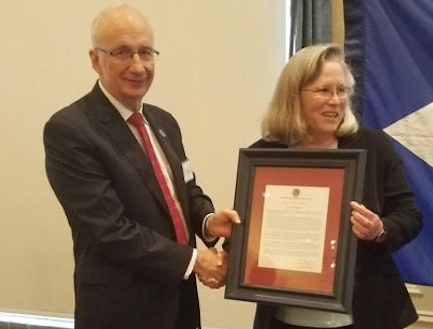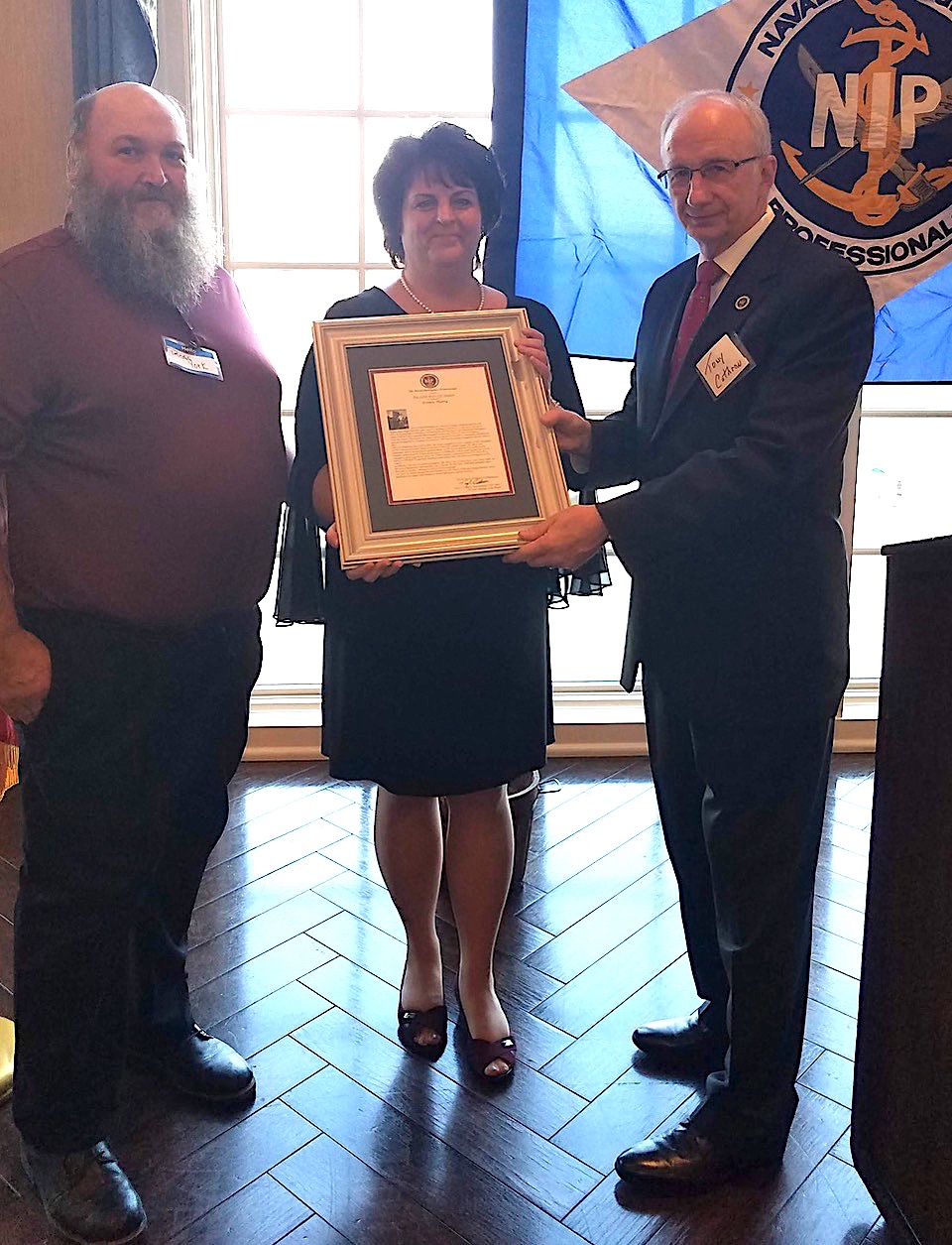The “Red Tie” Award
Every year during the NIP Spring “Red Tie” Luncheon, the Red Tie Award is given out to someone who has made significant and long-lasting contributions to naval intelligence. The luncheon and award have evolved over time from the the early days (1960) when it specifically involved Soviet Naval analysts. While the 1960 luncheon included only ONI analysts, it quickly expanded to include British and Canadian counterparts. Then, after DIA was founded and many ONI analysts moved to DIA in 1962, it was attended by ONI, DIA, Brits and Canadians. From there it spread to all those who were Soviet Navy analysts, wherever they worked, and ultimately to any naval intelligence professional. In 1983 the informal "Order of the Red Tie" initiated the Dworkin Award to recognize excellence in analysis of the Soviet Navy problem and in 1988 NIP initiated the first Red Tie Award in recognition of lifetime achievement in Naval Intelligence.
ONI’s Soviet Naval Analysts proudly wore scarlet foulards decorated with embroidered Sverdlov-class cruisers and the Hammer and Sickle to their annual luncheon honoring analytic excellence on the maritime threat. The original Red “Tie” (designed in the mid-to-late 1960s) was embossed with red stars that were superimposed on anchors. While the design of the Red Tie has since evolved, it has always remained true to the original spirit. In that vein and to meet the challenges of the 21st century, there is a new design for the venerable Red Tie that features the proud NIP logo to commemorate the renaissance of America’s oldest intelligence service.
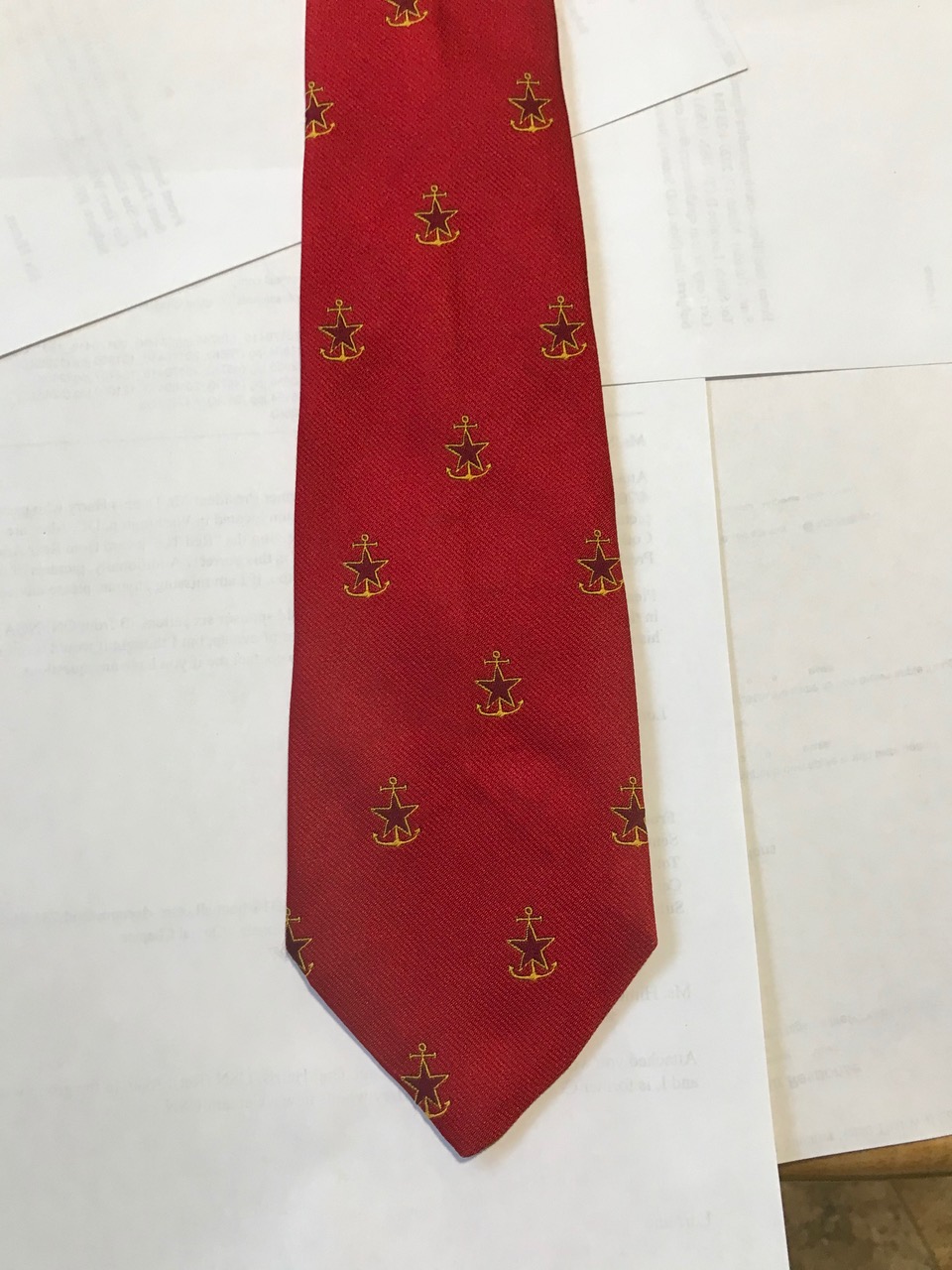
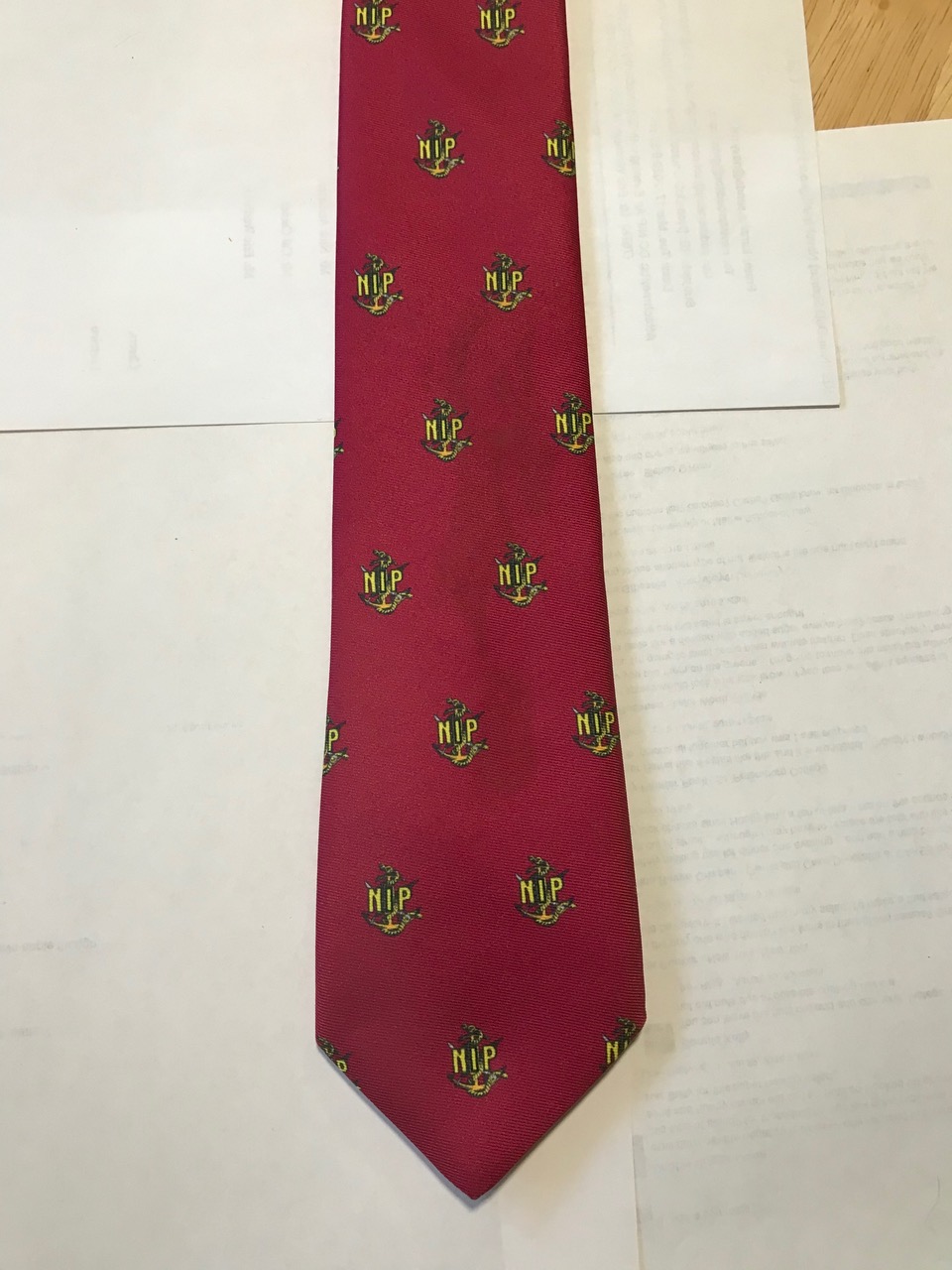
Key Dates in Red Tie History
1960: First Red Tie Luncheon.
1983: Red Tie Association gives out first “Dworkin Award” to recognize excellence in Soviet Navy analysis during annual “informal luncheon.” The inaugural recipient was George Federoff.
1988: NIP awards its first Red Tie Award (under NIP sponsorship).
1991: NIP assumes sponsorship of all things Red Tie (Luncheon and Award).
Awardees
2025 Red Tie Awardees
Mr. Robert “Bob” Wilson – Posthumously
NIP recognizes Robert “Bob” Wilson, posthumously, as one of two 2025 Red Tie Award winners. He has earned the respect, admiration, and appreciation of all Naval Intelligence Professionals through his long and distinguished 33-year career in Naval Intelligence.
Bob enlisted in the U.S. Air Force in January 1969 and served as a Chinese linguist until he was discharged from the Air Force in February 1973. He was hired as civilian intelligence analyst by the Naval Ocean Surveillance Information Center (NOSIC) in March 1974. Initially assigned watch standing duties on the Merchant Shipping desk in NOSIC’s Current Operations Center, he eventually became the head of the submarine desk in 1980. In 1985, Bob became the division head of a newly formed analytic group responsible for monitoring command and control of foreign military operations in support of NOSIC’s national indications and warning mission.
In 1992, Bob returned to the merchant shipping arena, assuming responsibilities as head of the Civil Maritime Department within ONI. While overseeing the activities of nearly 100 analysts and supporting contractors, he recognized a need to bolster the command’s involvement in monitoring international maritime activities and reorganized his team into a strong multi-disciplinary entity. He continued as head of the newly formed Civil Maritime Directorate while the analytical efforts of ONI moved from many sites throughout the Washington, D.C. area into a centralized facility in the Suitland Federal Center beginning in 1993. His keen understanding of the civil maritime problem made him one of the leaders of the problem set within the Intelligence Community. He worked to gain insight into the capabilities of Allied nations to allow for a centralized “clearing house” for civil maritime matters. This ultimately allowed ONI to help consolidate the collection of civil maritime information in support of the Allied cause.
Bob retired from ONI in June of 2003. He was a true leader in all respects and was able to draw the best out of the people who worked under his tutelage.
During his career, Bob was the recipient of several prestigious awards, including the William G. Brown Memorial Award NFOIO Outstanding Civilian for 1982; Edward C. Nielson Memorial Award for the Most Significant Civilian Contribution to Naval Intelligence in 1987; and two awards at his retirement in 2003: the National Intelligence Distinguished Service Medal from the National Foreign Intelligence Community and the Superior Civilian Service Award from the Department of the Navy.
CAPT (Ret) Dale Rielage, U.S. Navy

Captain (Ret) Dale Rielage is recognized for his exceptional service and outstanding contributions during an ongoing Navy and Intelligence Community career.
Dale graduated from Miami University of Ohio and commissioned as a surface warfare officer before transferring to the Naval Intelligence community.
As the nation’s national security priorities shifted to the Indo-Pacific, Dale became one of Naval Intelligence’s leading experts on China and the People’s Liberation Army Navy. During his active-duty career, he served as the Seventh Fleet Deputy N2, Third Fleet N2, and the U.S. Pacific Fleet Director for Intelligence and Information Operations. He also served as the Senior Intelligence Officer for China at the Office of Naval Intelligence and Director of the Navy Asia Pacific Advisory Group.
After retiring from the Navy, he was hired as a Senior Executive Service civilian and worked as the civilian Deputy Director for Intelligence and Information Operations in Makalapa. He then served in the Office of the Under Secretary of Defense for Intelligence & Security as the senior advisor for strategic competition.
Dale currently serves in the Office of the Secretary of Defense as the Director, OSD Red Team. In this role, he infuses his deep knowledge of China into the highest-level wargames and exercises as a realistic and challenging Red Team, steering the strategic and operational thinking, planning and investing of the Navy and the Department of Defense.
Throughout his career, Dale has been—and continues to be—a leader of Naval Intelligence, a leader of character and consequence. He has been at the forefront of efforts to thoughtfully evolve our tradecraft and grow our leaders for decades. He has consistently and persistently helped demystify the importance and value delivered by members of the naval intelligence profession to generations of senior warfighters. He has directly informed and positively impacted our planning, strategy, policy and investment decisions in ways that will continue to benefit our navy and nation well into the future!
CAPT Dave McMunn
Melissa Drisko (Posthumously)
George Fedoroff and Dennis Harry (Posthumously)
Tish Long
VADM Jake Jacoby, USN, Retired
CAPT Roger Granum, USN, Retired
RADM Rick Porterfield, USN, Retired
No Award
CAPT Tony Sesow, USN, Retired
CAPT Lou Martinez, USN, Retired
CAPT Sid Wood, USN, Retired
Jim Sloan
VADM Earl Rectanus, USN, Retired
VADM Mike McConnell, USN, Retired
ADM Bobby Inman, USN, Retired
LtCol John Guenther, USMC, Retired
CAPT Frank Notz, USN, Retired (Posthumously)
ADM Bill Studeman, USN, Retired
CAPT Bill Hatch, USN, Retired
Paul Lowell
1998: Rich Haver
1997: RADM Sumner Shapiro, USN, Retired
1996: RADM Tom Brooks, USN, Retired
1995: Lou Tordella
1994: CAPT J.Q. Edwards, USN, Retired
1993: RADM Mac Showers, USN, Retired
1992: CAPT Wyman Packard, USN, Retired
1991: CDR Bob Herrick, USN, Retired
1990: CAPT Emory Sourbeer, USN, Retired
1988: CAPT Bill Manthorpe, USN, Retired
Previous Red Tie Awardees




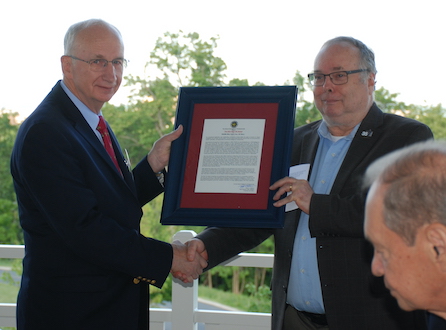
NIP President, RDML (Ret) Tony Cothron, presents award to RADM (Ret) Sam Cox
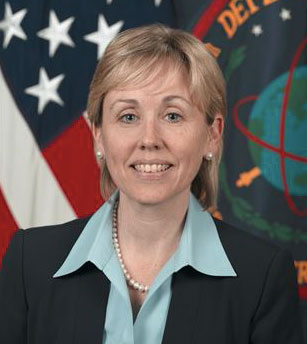
Read more about Melissa's award
NIP President RADM (Ret) Tony Cothron presents award to Lynn Wright

